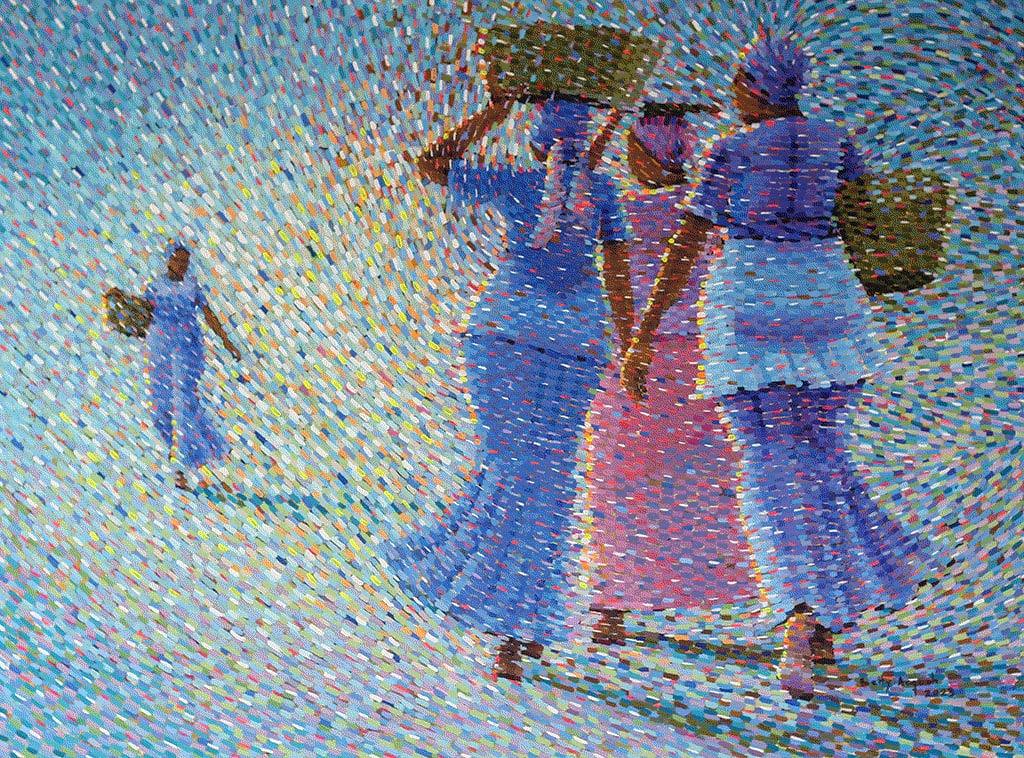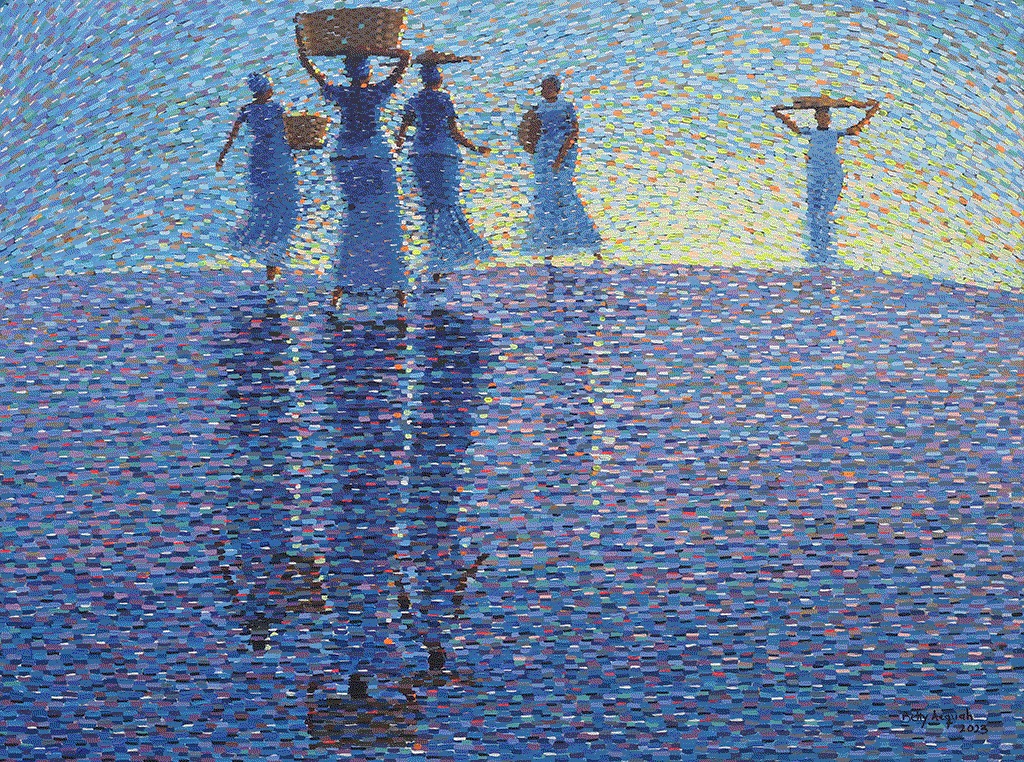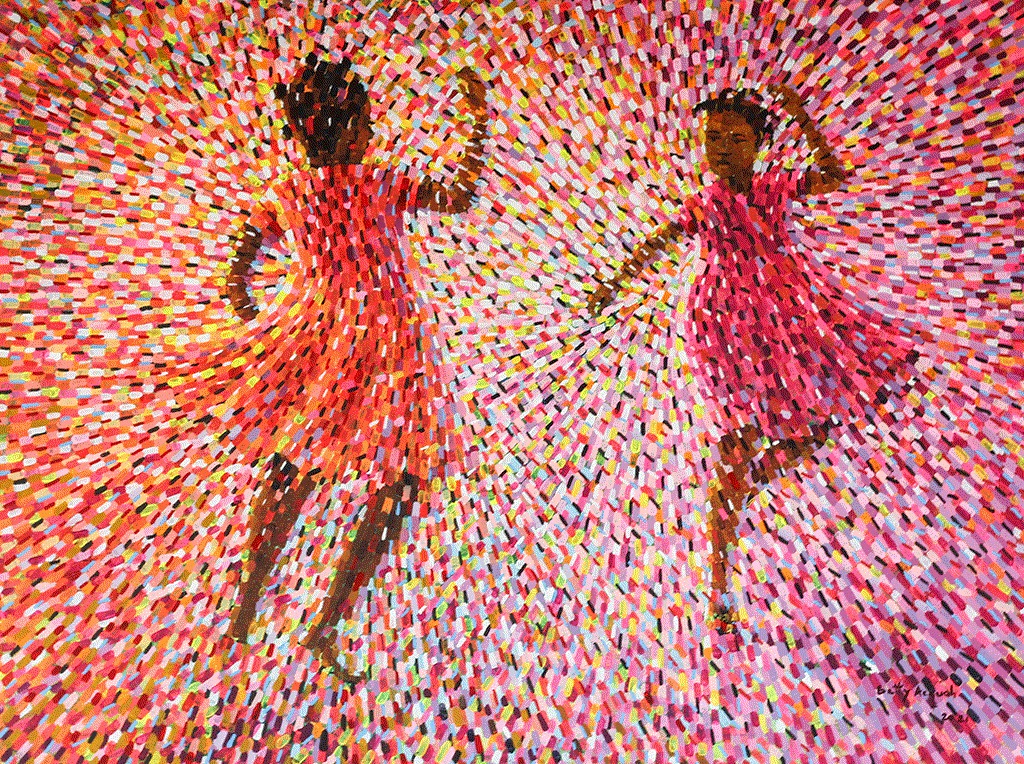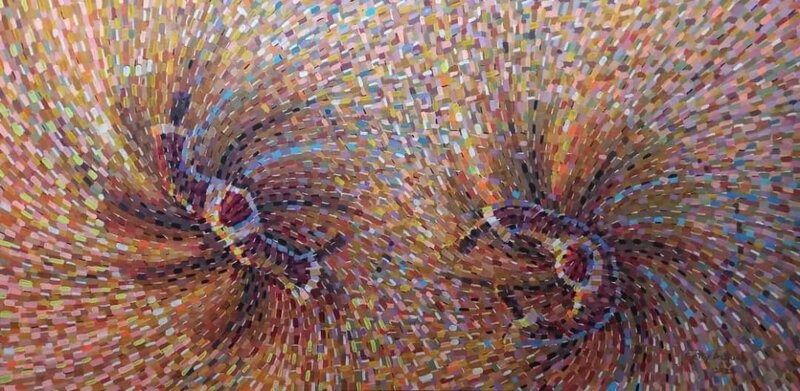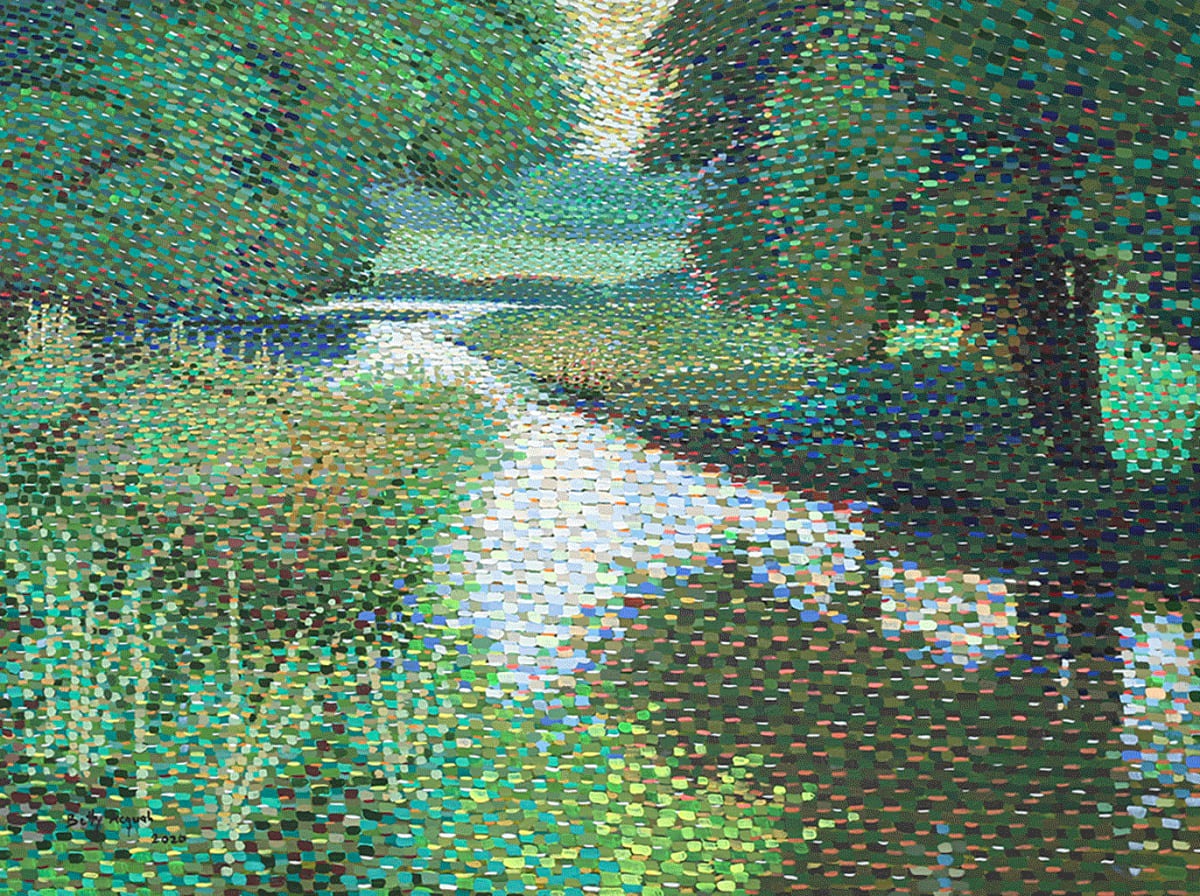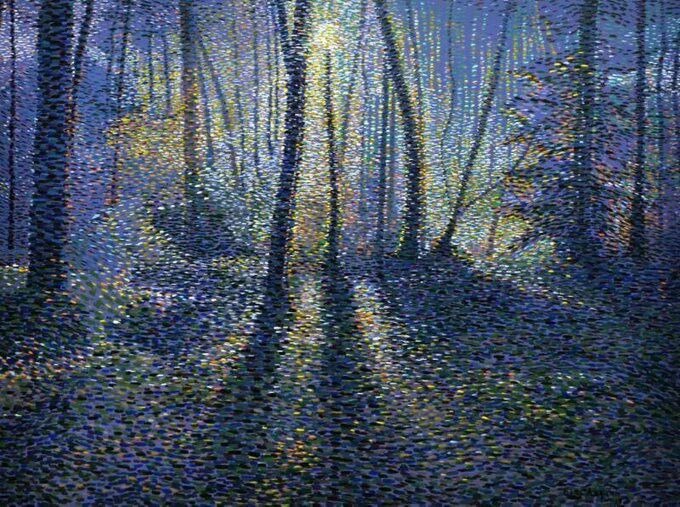Betty Acquah is a highly respected Ghanaian contemporary artist, celebrated for her unique style of painting and her focus on themes related to women, social justice, and Ghanaian culture. Acquah’s work has earned her recognition both in Ghana and internationally, as she uses her art to explore complex social issues, especially those affecting women and marginalized groups in society. Her paintings often capture the strength, resilience, and beauty of African women, while also addressing issues like gender inequality, poverty, and empowerment.
This article delves into the life, artistic journey, and the significance of Betty Acquah’s contributions to Ghanaian and African art.
Early Life and Education
Betty Acquah was born in Cape Coast, Ghana, into a family that valued education and cultural heritage. Her early life was marked by an interest in art, which she pursued with passion from a young age. Acquah’s exposure to the rich cultural traditions of Ghana, particularly those of the Fante people, played a crucial role in shaping her artistic vision and themes.
Acquah pursued her formal education in the arts at the Kwame Nkrumah University of Science and Technology (KNUST) in Kumasi, one of Ghana’s leading institutions for art and design. At KNUST, she earned a Bachelor of Fine Arts degree, which provided her with a strong foundation in both technical and conceptual aspects of art. During her studies, she was introduced to a variety of art forms, including painting, drawing, sculpture, and textile art, but it was painting that captured her imagination the most.
She furthered her studies at the Slade School of Fine Art in London, where she received advanced training and international exposure to different artistic traditions. Her time in London deepened her understanding of modern art and contemporary practices, which she later blended with her Ghanaian heritage to develop a distinctive artistic style.

Artistic Style and Themes
Betty Acquah’s art is distinguished by her intricate technique, particularly her use of pointillism, a style characterized by the application of small, distinct dots of color to create images. This meticulous approach, combined with vibrant color palettes, gives her work a sense of texture and movement that is both visually striking and thematically profound.
A central theme in Acquah’s work is the portrayal of women, often depicted in various stages of life, struggle, and triumph. Her paintings celebrate the resilience, strength, and inner beauty of African women while drawing attention to the challenges they face in a male-dominated society. She uses her art to tell stories of empowerment, perseverance, and social justice, making her work not only visually compelling but also socially relevant.
Key Themes in Betty Acquah’s Work
- Women’s Empowerment and Resilience:
Acquah’s art frequently highlights the role of women in African society, portraying them as pillars of strength despite the adversities they face. In her paintings, women are often seen engaging in various forms of labor—market activities, domestic work, or leadership roles—illustrating their contributions to the economy, family, and community. - Gender Inequality:
A feminist at heart, Acquah addresses the inequalities that women endure in a patriarchal society. Her work often focuses on themes such as gender-based violence, discrimination, and the limited opportunities for women in both rural and urban settings. Through her art, she advocates for greater gender equality and calls attention to the need for social change. - Social Justice and Empowerment of Marginalized Groups:
Beyond gender issues, Acquah’s paintings delve into broader themes of social justice, focusing on the struggles of marginalized communities. Her works challenge societal norms that perpetuate poverty and inequality, offering a platform for the voiceless through her art. By highlighting the dignity and humanity of those often forgotten by society, she invites viewers to reflect on the broader social and political structures that create these injustices. - Cultural Heritage and Identity:
Acquah’s art is deeply rooted in Ghanaian culture, drawing on symbols, colors, and patterns that reflect her African heritage. Her work often incorporates traditional Ghanaian attire, textiles, and symbols, creating a dialogue between the past and the present. Through her art, she celebrates the richness of Ghanaian culture while also engaging with contemporary social issues.
Notable Works and Exhibitions
Betty Acquah has exhibited her work extensively both in Ghana and internationally. Her works have been featured in solo and group exhibitions, gaining her recognition in the global art community. Some of her notable exhibitions include:
- “Celebrating Ghanaian Women” Series:
One of her most prominent series, this body of work focuses on the lives and contributions of Ghanaian women from all walks of life. Through vibrant portraits and dynamic scenes, Acquah captures the strength, dignity, and beauty of women, celebrating their role in the nation’s development. - “Survival of the Fittest” Series:
In this series, Acquah highlights the economic struggles of women, particularly market women and traders in Ghana’s informal economy. The series emphasizes the resilience of women who persevere despite limited resources and opportunities. - International Exhibitions:
Acquah’s works have been displayed in galleries and exhibitions worldwide, including in Europe and the United States. Her participation in international exhibitions has helped bring Ghanaian contemporary art to a global audience and has positioned her as one of the leading voices in African feminist art.






Impact and Legacy
Betty Acquah’s art has made significant contributions to Ghana’s contemporary art scene. She has become a voice for the voiceless, using her platform to advocate for women’s rights, social justice, and equality. Her influence extends beyond the art world into social activism, where she plays a crucial role in advancing the conversations around gender equality and empowerment.
Through her work, Acquah has helped bring attention to the lived experiences of women and marginalized groups in Ghana, encouraging society to confront these issues more openly. Her paintings are not only aesthetically captivating but also serve as powerful tools for social commentary, inspiring dialogue and change.
As one of Ghana’s most prominent feminist artists, Betty Acquah’s work continues to inspire a new generation of artists who seek to use their creative talents to address social issues. Her legacy is one of empowerment, resilience, and advocacy, and her influence will undoubtedly continue to shape the future of Ghanaian and African art.
Betty Acquah is a trailblazer in Ghanaian contemporary art, known for her vibrant, socially conscious works that highlight the experiences of women and marginalized communities. Through her unique artistic style and commitment to addressing social issues, Acquah has left an indelible mark on Ghana’s art scene and has earned recognition on the international stage. Her legacy as both an artist and an advocate for women’s rights and social justice continues to inspire and challenge audiences worldwide.


